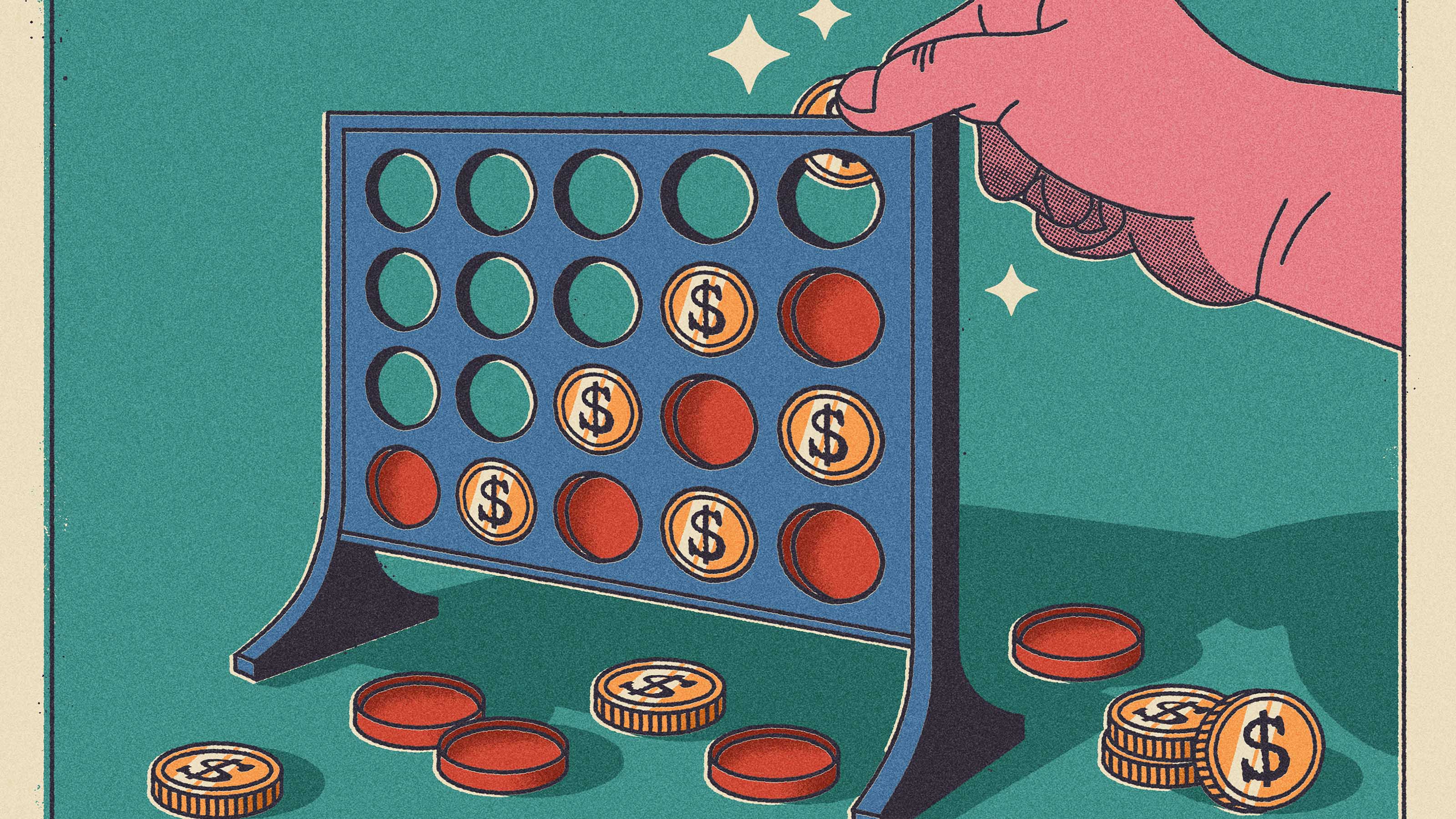Why I'm Hanging On to a Loser
Gilead is way down from when I bought it, but it is flush with cash and has dozens of promising medications in its pipeline.

Profit and prosper with the best of Kiplinger's advice on investing, taxes, retirement, personal finance and much more. Delivered daily. Enter your email in the box and click Sign Me Up.
You are now subscribed
Your newsletter sign-up was successful
Want to add more newsletters?

Delivered daily
Kiplinger Today
Profit and prosper with the best of Kiplinger's advice on investing, taxes, retirement, personal finance and much more delivered daily. Smart money moves start here.

Sent five days a week
Kiplinger A Step Ahead
Get practical help to make better financial decisions in your everyday life, from spending to savings on top deals.

Delivered daily
Kiplinger Closing Bell
Get today's biggest financial and investing headlines delivered to your inbox every day the U.S. stock market is open.

Sent twice a week
Kiplinger Adviser Intel
Financial pros across the country share best practices and fresh tactics to preserve and grow your wealth.

Delivered weekly
Kiplinger Tax Tips
Trim your federal and state tax bills with practical tax-planning and tax-cutting strategies.

Sent twice a week
Kiplinger Retirement Tips
Your twice-a-week guide to planning and enjoying a financially secure and richly rewarding retirement

Sent bimonthly.
Kiplinger Adviser Angle
Insights for advisers, wealth managers and other financial professionals.

Sent twice a week
Kiplinger Investing Weekly
Your twice-a-week roundup of promising stocks, funds, companies and industries you should consider, ones you should avoid, and why.

Sent weekly for six weeks
Kiplinger Invest for Retirement
Your step-by-step six-part series on how to invest for retirement, from devising a successful strategy to exactly which investments to choose.
I used to lament my nose. I wouldn’t say it’s big, though some might disagree. Let’s just say it’s not “delicate.” This bothered me most when I was in high school and I (and everyone I knew) was intensely insecure. Fortunately, I lacked the resources to do anything about my nose at the time.
Years later, when I could afford the plastic surgery necessary to create the tiny ski-slope schnoz I’d once considered ideal, I had a change of heart. My ample nose somehow seemed to suit my face. Although imperfect, it is part of what makes me unique, and it has become a part of my personal style.
My investing style has similar imperfections—quirks that I’m aware of but have learned to live with and even appreciate. Among the most prominent of these is my reluctance to sell. Over the six years I’ve managed the Practical Investing portfolio, I’ve let go of just eight holdings. Most of those sales were torturous for me, involving at least six of the seven stages of grief.
From just $107.88 $24.99 for Kiplinger Personal Finance
Become a smarter, better informed investor. Subscribe from just $107.88 $24.99, plus get up to 4 Special Issues

Sign up for Kiplinger’s Free Newsletters
Profit and prosper with the best of expert advice on investing, taxes, retirement, personal finance and more - straight to your e-mail.
Profit and prosper with the best of expert advice - straight to your e-mail.
Shock and denial: No! Acacia Research can’t be a dog. It was a fast-grower; things will turn around. No? Still no? Pain and guilt: Those losses are pulling down my entire portfolio. Why was I stupid enough to buy this train wreck? Anger: Who are the idiots running this company? Depression: I should sell, but what’s the use? I obviously have no stock-picking skill. Upturn: You made a mistake. Move on. Working through: Jettison that dog and reinvest the proceeds in a stock that you’ve researched like crazy. Acceptance and hope: There are a lot of good stocks out there. I only need to find one.
Struggling biotech. I mention this because several readers have suggested that I sell my stake in Gilead Sciences (symbol GILD), which I bought in January 2016 for $90.81 a share. Since then, sales and earnings have slipped—largely because of decreased demand for the company’s hepatitis C drugs—and the shares now sell for $76 (prices are as of July 31). Gilead’s second-quarter results were better than anticipated, but analysts expect it to be at least a year or two before revenues and profits start climbing again. Given that the company is not likely to turn the corner quickly, one reader suggested that if I wanted to own the stock for the long term, I should sell and wait the more than 30 days needed to beat the IRS’s wash-sale rule, so I could deduct the loss and repurchase the shares. This reasonable advice clearly comes from someone who finds selling less painful.
My reluctance to sell has been good for me at times. Consider my investment in Corning (GLW). The stock slumped shortly after I bought it in October 2011, as demand faded for the TV and computer screens for which Corning made glass. Year after lackluster year, I told myself that Corning would come back on the strength of its shatter-resistant Gorilla glass and its fiber optics business, which makes cables for phone and internet companies. And that’s what happened.
Falling prices for LCD displays continue to challenge Corning. But other parts of the business are lifting overall results. Gorilla glass is now used in cars and cell phones, and the firm signed a $1 billion deal to produce optical fiber for Verizon Communications’ data network. The stock has been on a tear, rising 63%, to $29, since the beginning of 2016. Had I sold Corning during the slump, I would have missed the turnaround. My position in Corning boasts a 141% gain, 28 percentage points better than the benchmark I use to measure my results.
I think Gilead has similar long-term potential. It has dozens of promising drugs in the pipeline; it is flush with $36.6 billion in cash and securities; and it is seeking to acquire other drug companies with valuable treatments. This may be denial speaking. But that’s part of my investment process and, just like my nose, I’ve learned to live with it.
Kathy Kristof is a contributing editor to Kiplinger’s Personal Finance and author of the book Investing 101. You can see her portfolio at kiplinger.com/links/practicalportfolio.
Profit and prosper with the best of Kiplinger's advice on investing, taxes, retirement, personal finance and much more. Delivered daily. Enter your email in the box and click Sign Me Up.

-
 The New Reality for Entertainment
The New Reality for EntertainmentThe Kiplinger Letter The entertainment industry is shifting as movie and TV companies face fierce competition, fight for attention and cope with artificial intelligence.
-
 Stocks Sink With Alphabet, Bitcoin: Stock Market Today
Stocks Sink With Alphabet, Bitcoin: Stock Market TodayA dismal round of jobs data did little to lift sentiment on Thursday.
-
 Betting on Super Bowl 2026? New IRS Tax Changes Could Cost You
Betting on Super Bowl 2026? New IRS Tax Changes Could Cost YouTaxable Income When Super Bowl LX hype fades, some fans may be surprised to learn that sports betting tax rules have shifted.
-
 The Most Tax-Friendly States for Investing in 2025 (Hint: There Are Two)
The Most Tax-Friendly States for Investing in 2025 (Hint: There Are Two)State Taxes Living in one of these places could lower your 2025 investment taxes — especially if you invest in real estate.
-
 The Final Countdown for Retirees with Investment Income
The Final Countdown for Retirees with Investment IncomeRetirement Tax Don’t assume Social Security withholding is enough. Some retirement income may require a quarterly estimated tax payment by the September 15 deadline.
-
 The Best Health Care Stocks to Buy
The Best Health Care Stocks to BuyThe best health care stocks offer investors a defensive hedge in an uncertain market. Here's how to find them.
-
 The Best Large-Cap Stocks to Buy
The Best Large-Cap Stocks to BuyLarge-cap stocks are key additions to any well-rounded portfolio. Let's take a look at how to find the best ones for you.
-
 Stock Market Today: Markets Mark Time Ahead of Tech Earnings, Fed
Stock Market Today: Markets Mark Time Ahead of Tech Earnings, FedStocks searched for direction ahead of mega-cap tech quarterly reports and tomorrow's rate decision.
-
 Stock Market Today: Stocks Build on Broad-Based Gains
Stock Market Today: Stocks Build on Broad-Based GainsA heavy week of earnings and data ahead couldn't spoil the market's record-setting Monday mood.
-
 How to Beef Up Your Portfolio Against Inflation
How to Beef Up Your Portfolio Against Inflationinvesting These sectors are better positioned to benefit from rising prices.
-
 Taxable or Tax-Deferred Account: How to Pick
Taxable or Tax-Deferred Account: How to PickInvesting for Income Use our guide to decide which assets belong in a taxable account and which go into a tax-advantaged account.